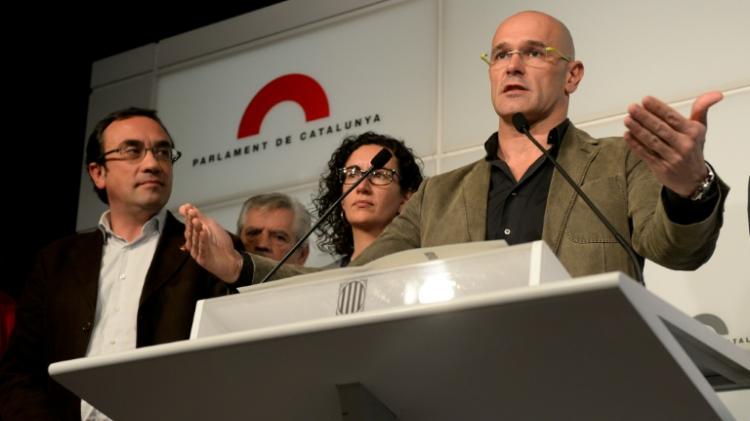-
Tips for becoming a good boxer - November 6, 2020
-
7 expert tips for making your hens night a memorable one - November 6, 2020
-
5 reasons to host your Christmas party on a cruise boat - November 6, 2020
-
What to do when you’re charged with a crime - November 6, 2020
-
Should you get one or multiple dogs? Here’s all you need to know - November 3, 2020
-
A Guide: How to Build Your Very Own Magic Mirror - February 14, 2019
-
Our Top Inspirational Baseball Stars - November 24, 2018
-
Five Tech Tools That Will Help You Turn Your Blog into a Business - November 24, 2018
-
How to Indulge on Vacation without Expanding Your Waist - November 9, 2018
-
5 Strategies for Businesses to Appeal to Today’s Increasingly Mobile-Crazed Customers - November 9, 2018
Catalonia Secession Push Halted as Party Opposes Mas
Spain’s Catalonia region faces fresh elections after the Popular Unity Candidacy (CUP) party on Sunday rejected an offer to join a pro-independence government led by Artur Mas.
Advertisement
In September elections his Junts pel Si (Together for Yes) alliance won 62 of the 135 seats in the Catalan assembly.
The Catalan deadlock comes as Spain faces weeks of political uncertainty nationally, after an inconclusive general election on 20 December.
Spanish leaders are trying to find their place in a vastly-changed political landscape after Rajoy lost his overall majority in the general elections and the Socialists also lost support, with voters turning to emerging parties such as the anti-austerity Podemos, which picked up votes in Catalonia by pledging support for an independence referendum.
If the Catalan parliament does not elect a leader and form a new government by January 9 it must call fresh elections which would be the fourth in the region since 2010.
Local newspaper El Periódico reported the vote was decided by a difference of four votes.
“The independence movement has an absolute majority (within the region) but with this candidate… we can not form a government”, Sergi Saladie, CUP party member, said as cited by AFP.
The alliance has so far maintained full support for Mas.
In Catalonia, the long debate over Mr. Mas revealed deep fissures within the independence movement that raise questions about its future.
“We haven’t voted for (new elections in) March, we have voted no to the candidate put forward by Together for Yes”, he added.
Catalonia accounts for about 20 percent of Spain’s output and for years the region has chafed at having to subsidize poorer regions such as Andalusia as a net contributor to the national tax system.
Following the CUP vote, Jordi Sanchez, chairman of the Catalan National Assembly, promised that “everything we have done over the past few years is not lost” in a Twitter post.
The button-down Mr. Mas, 59 years old, has evolved in recent years from a pillar of the Spanish political establishment to a thorn in the side of the national government who is regularly assailed by the media in Madrid. That’s because a pro-independence government in Catalonia would have justified a national “grand coalition” of the PP and Socialists, the country’s main parties, with the liberals of Ciudadanos, he said.
Advertisement
Separatist fervour has dulled since 2012 when at the height of Spain’s recession around one million people turned out onto the streets of Barcelona clamouring for independence.





























